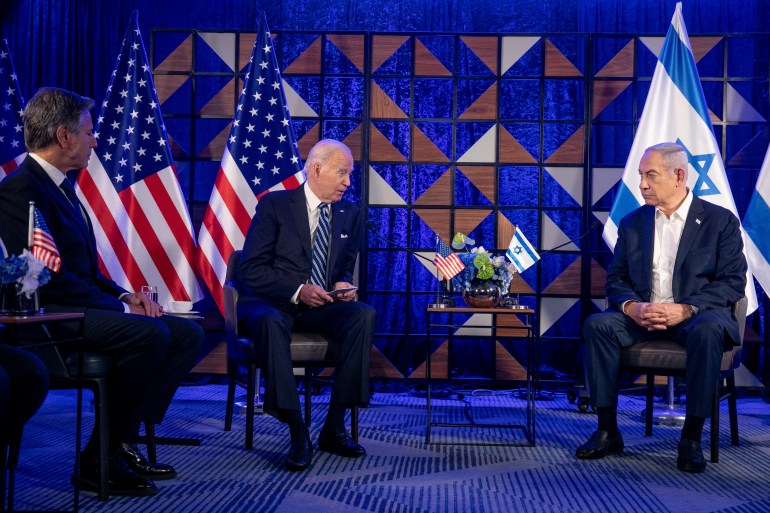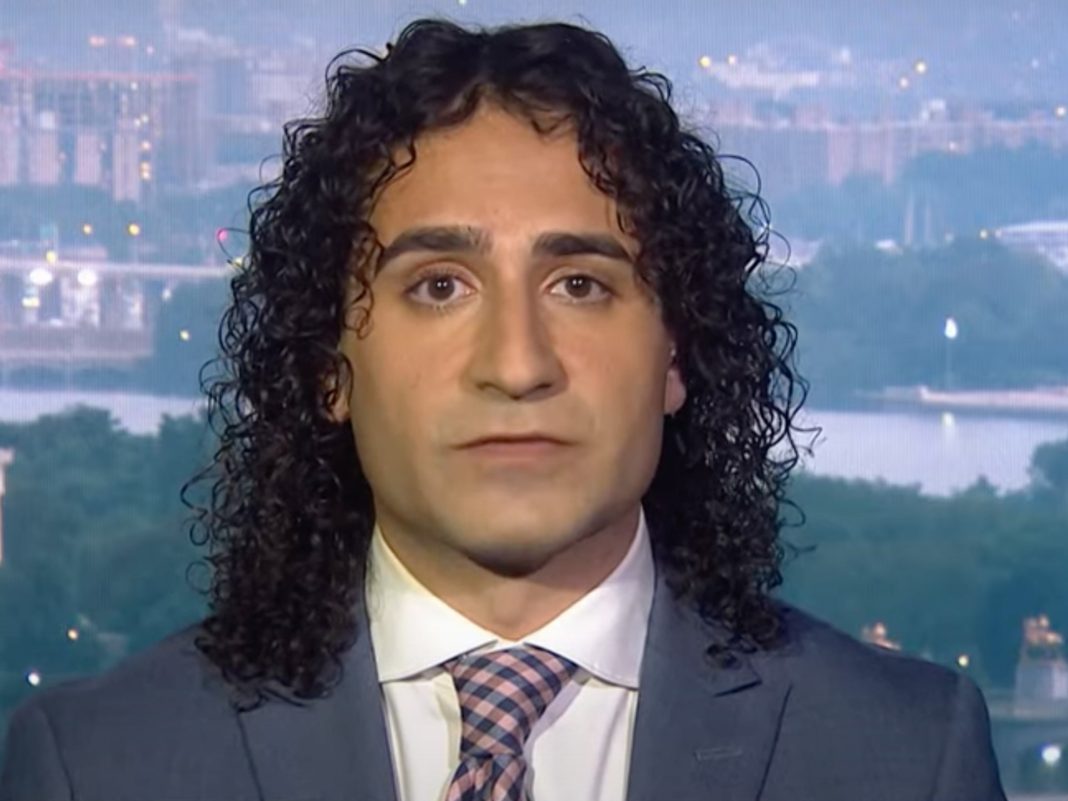Tariq Habash says it was “the only thing” he could do.
A Palestinian American and political appointee in the United States Department of Education, Habash drew headlines last week when he became the second official to publicly resign from the administration of President Joe Biden over its response to the war in Gaza.
Since October, Israel has bombarded the Palestinian enclave, killing more than 23,210 people. But the White House has continued to voice staunch support for Israel, its top ally in the Middle East.
Habash said he resigned because he could no longer “represent an administration that does not value all human life equally”.
“I cannot stay silent as this administration turns a blind eye to the atrocities committed against innocent Palestinian lives, in what leading human rights experts have called a genocidal campaign by the Israeli government,” he wrote in his resignation letter.
Other administration staffers and former Biden campaign workers have also spoken out since the war began on October 7, following Hamas’s attacks in southern Israel that killed 1,200 people. In letters and other statements, the staffers urged the president to demand a ceasefire.
Yet, while Biden and his senior officials have called on Israel to do more to minimise civilian casualties, Washington remains opposed to a ceasefire. The US stands with Israel in its mission to “ensure that October 7 never happens again”, Secretary of State Antony Blinken said during a news conference in Jerusalem on Tuesday.
Al Jazeera host Nick Clark spoke to Habash about his decision to resign and the effect US support for Israel has had on Palestinians as the war on Gaza continues.

Al Jazeera: What goes through your mind when you hear Blinken singing the same old song when he’s speaking from Israel, basically backing Israel’s efforts in Gaza with weapons the US supplied?
Tariq Habash: It’s hard to hear. Unfortunately, we’re in a situation where the indiscriminate bombing of over 2 million people in Gaza has continued for over three months now. And it’s clear that the messaging and the policy is not really shifting.
I think there’s a clear acknowledgement that there is too much violence, too much harm, that has fallen on innocent Palestinian lives, but we continue to fall short of acknowledging the humanity and the right to life for those Palestinians. And it’s difficult to hear.
Al Jazeera: You had a significant, important job in the Biden administration. Take us through, if you would, why you did make the decision that you did in the end.
Habash: For me, as a Palestinian American, as a Palestinian man, as a Palestinian Christian, my identity is intertwined with everything that has been happening.
And the reality is that there has been a near-daily dehumanising effect of our [the US’s] current policies and just what is allowed to persist in terms of the aggression against Palestinian life.
I, for weeks, used every avenue I could to raise concerns about these policies, to emphasise the importance of humanising Palestinians — Palestinian men too, Palestinian Christians who are a significant minority in the region now.
That message, it fell on deaf ears, and it was clear that the only thing I could do in this moment to emphasise my consternation, my concern, with the ongoing policy was to resign.

Al Jazeera: When you say it fell on deaf ears, what actually happened? Did people tell you just to keep quiet and not mention it? How did it unfold?
Habash: It wasn’t necessarily like, “Keep quiet.” The White House held listening sessions, policy briefings, which was mostly just communicating to us what their assessment of the region is — of the circumstance as it was unraveling.
Within the Department of Education, there was a lot of understanding, even from the secretary himself, who I met with and spoke with on numerous occasions, about how the violence was affecting me on a personal level. There was a lot of patience and constant support from my own building.
But I think being able to communicate about that on a personal level is very different from acknowledging how the broader policies are affecting millions of people in the region — and also millions of Americans who broadly support an end to this violence and a permanent ceasefire.
Al Jazeera: It must have been extremely hard for you to hear what was being said effectively by your boss, the president, when he said he didn’t, for example, necessarily trust Palestinian figures for the number of dead.
Habash: Absolutely. I talk about that in my [resignation] letter.
There are certain things that I think were really dangerous rhetoric used by the administration over the last three months that allowed and facilitated the level of destruction against the Gaza Strip and the millions of people that live there today.
Al Jazeera: You talked about growing support for the Palestinian cause in the United States. Protesters interrupted President Biden’s speech yesterday in South Carolina. We’re likely to see more of that in this election year. To what degree do you think this is going to affect Democrats’ hopes in the election polls?
Habash: I think it’s up to the president and the Democratic Party more broadly to make a decision, but I think we’re seeing it affect that [support for Democrats] right now.
Like you said, there were protests at the [South Carolina] church where the president spoke. There were protests across New York City that shut down four different tunnels and bridges.
This is something that we’re starting to see more of because I think the soul of the American people really does believe in an end to the violence here. We see a majority of Americans support a ceasefire. We see the vast majority of the Democratic base — young voters, voters of colour — who do not believe that the current policies are reflective of their values.
The president has frequently, in the last week, talked about what 2024 means with respect to protecting democracy from an authoritarian regime that would be possible under [former President and 2024 Republican frontrunner Donald] Trump.
That’s a really important and critical message, but I think it’s also inconsistent with what the president is doing with respect to his deference to an authoritarian, right-wing regime in the Israeli government and its oppression of millions of Palestinians.
Al Jazeera: Democrats can disagree all they like with President Biden, but what are they going to do? Are they just going to turn turtle and vote for Trump?
Habash: I think it’s up to the president to decide how important his voters are and understanding that they really do value human life, regardless of whose lives it is.
It’s clear that the current policies put restrictions on when Palestinian lives matter and when they don’t, and I think that’s a problem for voters.
This interview has been edited for length and clarity.







